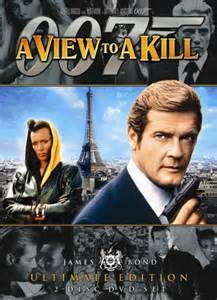An Open Letter of Apology to Jeffrey Deaver
Let's start out with the admission of my guilt: I was wrong!. There, I have said it (or written it). I waited three years from it's publication to read Jeffrey Deaver's authorized James Bond novel, Carte Blanche, because I, stubbornly, refused to allow myself to buy into the notion that anyone other than Ian Fleming could write a good Bond spy novel. I foolishly believed that reading a Bond novel written by anyone but Fleming was, somehow, a betrayal of the legacy; that reading a non-Fleming work was buying into a cheap attempt to cash in on the Bond-starved fan base's desire for ANYTHING Bond.
In Deaver's contemporary setting we meet a younger Bond, in his 30's, who still carries his "00" status but within a re-tooled agency more fitted to the post 9/11 world than to the Cold War of Fleming and the early films. Bond's directive seems to be broader and his role more suited to identify and eliminate threats to the country by extraordinary means" than his historical "license to kill" directive. The adventure brings him to Serbia, London, Dubai and South Africa in an attempt to uncover and foil a terrorist strike whose complexity unfolds as the novel progresses, climaxing with an exciting plot twist. Deaver returns back to the Fleming tradition of using contemporary world settings as a backdrop for third party madmen and financially driven terrorists to flourish as they create their own brand of Chaos. Severan Hydt and Nial Dunne hearken back to the days of Dr. No, Goldfinger, and even Ernst Stavro Blofeld.
No Bond book or movie would be complete without its iconic female characters and Deaver's is no exception. Whether's it's a fixture, like Ms. Moneypenny, or a newcomer like Bheka Jordaan, the Female characters, and there are many, are strong, dynamic, three-dimensional women. These woman are not mere wallpaper, but integral parts of the story. They are the new breed of Bond Girls and I think they are here to stay.
The book is also rich with some staple characters, such a the M, Felix Leiter, Mary Goodnight, and a retrofitting of the classic "Q" character in the rich, energetic Sanu Hirani. The presence of these foundational, source characters do a lot to anchor the reader in the fact that even though the setting and the agency have been updated, that we are still in the world of Ian Fleming's James Bond. Deaver's treatment of these characters are fitting tributes to the iconic characters.
No treatment of Carte Blanche would be fair and complete without a discussion of Deaver's treatment of Bond himself. The novel rises, or would have fallen, on Deaver's interpretation and presentation of the character. In an interview about this very topic Deaver discussed the difficulty of finding the balance between the Fleming Bond of the original novels and the Bond of film. The public's exposure to fifty (50) years of Bond films makes the film presentation of the character far more familiar; however, which film Bond was Deaver to present: Connery? Craig? Moore? or, maybe, Dalton or Brosnan? Finally, Deaver is an American writer and Fleming wrote in a distinctly British tone. Could Deaver capture a British tone without the work becoming satirical?
So how did Deaver overcome these issues in order to create a viable Bond true to the Fleming legacy, that would still satisfy movie aficionados? He accomplished this in two ways. First, he stayed very true to the basic nature of Bond; light on the gimmicks, serious but with a sense of humor, flawed, a loner, passionate with a strong moral center, unmatched skills, and intellect. He also left enough of the character's edges undefined that the reader, if familiar with the Bond films, could individually plug in their favorite James Bond and the story would still work. I actually experimented with this concept in the midst of my reading by consciously envisioning Roger Moore's Bond in the lead, despite the fact that I was naturally envisioning Daniel Craig as I read, and, I must admit, I was able to comfortably do so. This is the gift of artful writing and I could see this work being easily converted into a screenplay for a future Bond motion picture.
In the final analysis, Jeffrey Deaver delivered a well written, intriguing, exciting, gritty, James Bond Novel that made it hard to put down. I found myself sad to finish it and, equally sad with the knowledge that Deaver will contribute no other novels to the Bond Collection. William Boyd's Solo, the next authorized James Bond novel, will return the Cold War Bond. If he is able to capture the essence of the character nearly as well as Deaver, the book will be a huge success.
- ISBN-13: 9781451620696
- Publisher: Simon & Schuster
- Publication date: 6/14/201







